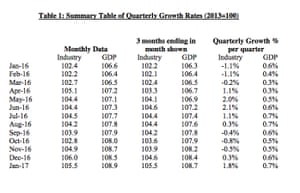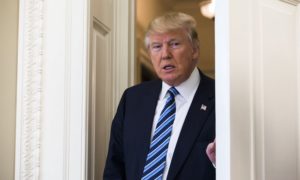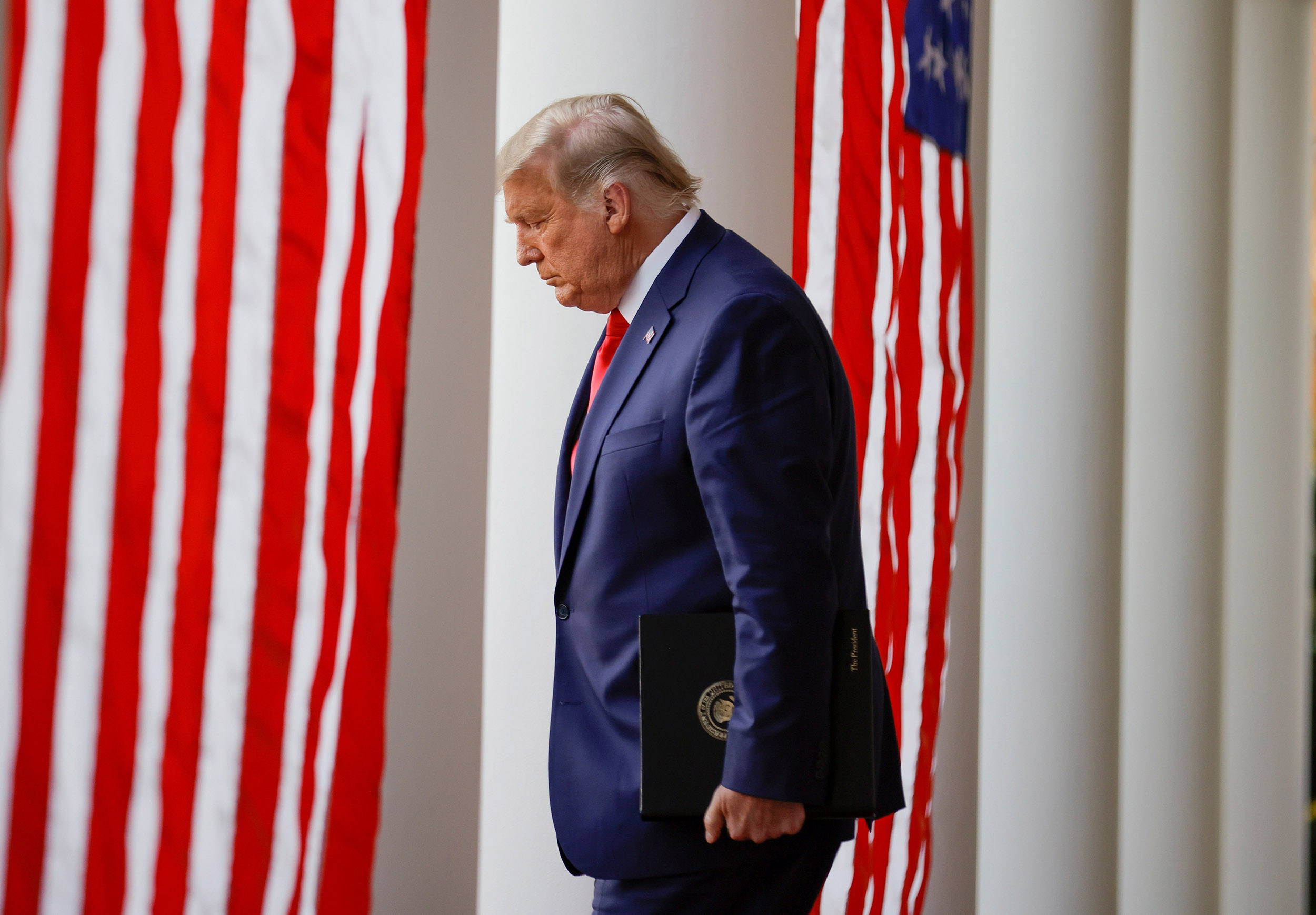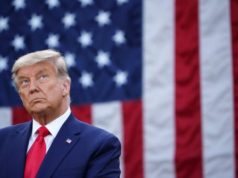UK and US markets outperform Europe
Donald Trump’s promise of a “phenomenal” tax plan to be unveiled soon has sent most markets higher for the second day, outweighing any worries from Fitch’s assessment of the US president as a risk to the global economy.
There has been some divergence, with the US markets hitting new peaks and the UK outperforming European markets, amid worries about Greece and the forthcoming elections in France, the Netherlands and Germany. The final scores showed:
- The FTSE 100 finished up 0.4% or 29.25 points at 7258.75, boosted by mining shares as metal prices rallied after positive Chinese trade data
- Germany’s Dax rose 0.21% to 11,666.97
- France’s Cac closed up 0.04% at 4828.32
- Italy’s FTSE MIB fell 0.45% to 18,862.11
- Spain’s Ibex ended down 0.64% at 9378.1
- In Greece, the Athens market added 2.46% to 623.79 as creditor meetings continued
On Wall Street the Dow Jones Industrial Average is currently up 89 points or 0.45%.
More on Greece from Helena Smith:
Its official: #Greek gov sources saying they are not expecting decisive breakthrough in @tsakalotos meeting w creditor reps today
— Helena Smith (@HelenaSmithGDN) February 10, 2017
Since Greek #debt crisis began success govs hv expressed "optimism" re deadlock w creditors but cycle of drama has proved its rarely tt easy
— Helena Smith (@HelenaSmithGDN) February 10, 2017
After #ECB's Ewald Nowotny's remarks quite clear tt #Greek crisis rooted as much in disagreement over role of #IMF as Gk reluctance 2 reform
— Helena Smith (@HelenaSmithGDN) February 10, 2017
No justification for IMF to be in Greek deal – ECB’s Nowotny
There is no reason why the IMF should be part of the Greek rescue deal, according to ECB member and president of the National Bank of Austria, Ewald Nowotny.
Germany has said the IMF must be part of the Greek solution, but in an interview with Der Standard (in German), Nowotny said:
I do not understand why at the EU level one insists that the fund is on board. This would only be an additional complication, which does not contribute to the solution of the problem.
There is neither economic nor political justification. Greece is a European problem, and Europe will solve it. I fear, politicians deliberately create a crisis scenario, the solution of which is uncertain. Because we do not know the role of the IMF under the influence of Trump’s United States.
ECB's Nowotny: No political nor economic justification for the IMF to be part of Greek rescue –Der Standard
— Rens® (@rens_beck) February 10, 2017
 Patrick Collinson
Patrick CollinsonSo, if the next financial crisis comes, where could it start? Perhaps with car loans. Patrick Collinson reports:
A huge increase in the amounts borrowed by already indebted households in Britain and the US to buy new vehicles is fuelling fears that “sub-prime cars” could ignite the next financial crash.
British households borrowed a record £31.6bn in 2016 to buy cars, up 12% on the year before, said the Finance and Leasing Association on Friday. Nine out of 10 private car buyers are now using personal contract plans (known as PCPs), which have boomed since interest rates fell to historic lows.
Under these cheap leasing deals, buyers pay a small deposit and then commit to making a monthly payment for the next three years with the option to buy or hand back the car at the end. The rise of PCPs helps to explain rocketing car sales in Britain despite flat or falling household incomes. A record 2.7m new cars were sold in Britain last year – the fifth year in a row of rising sales. Per head, the British are buying more new cars than any other large country in Europe.
Car financing in the UK is a “flashing light”, according to Andrew Evans, a fund manager at investment firm Schroders. “Borrowing is a very bad idea when it is done against a depreciating asset … such as a car,” he said, adding that there was a “serious level of fragility built into the system”.
Markets continue to move higher, more so in the US and UK than in Europe, where investors worry about Greece’s debt problems and the uncertainty over the forthcoming elections in France, the Netherlands and Germany.
With the Dow Jones Industrial Average, S&P 500 and Nasdaq all hitting new peaks on the back of Trump’s promised tax reforms, Chris Beauchamp, chief market analyst at IG, said:
The final session of the week confirms that the bulls are in charge once again. Yet more record highs for the Dow, S&P 500 and Nasdaq 100 all point to a re-energised rally for stock markets, and while there has been a modest intraday wobble, this has simply provided a fresh chance for some new buyers to hop on board. Investors looked like they had fallen out of love with mining stocks earlier this week, but it appears this too was just a brief period of disillusionment and now the romance is back on… Earnings season is beginning to wind down in the US, but overall the period has not seen any major surprises, and the promise of a Trump tax plan seems perfectly calculated to keep markets on the front foot.
Just in case you thought the latest Greek drama might threaten to come to an early resolution:
Meeting btw institutions + @tsakalotos has started "no deal is expected today" say both Greek and EU officials.
— Eleni Varvitsioti (@Elbarbie) February 10, 2017
Greek official: No bailout deal expected in meeting today
– Brussels meeting shouldn't be dramatised— LiveSquawk (@LiveSquawk) February 10, 2017
On the NIESR data, Paul Sirani, chief market analyst at Xtrade, said:
The NIESR’s latest estimate suggests UK economic output accelerated impressively during the three months ending in January, in what is the latest sign of a resilient UK economy.
The post-Brexit Armageddon predicted by so many is still absent, with consistent growth since June’s votes leaving economists eating humble pie for now.
However, a period of uncertainty is imminent. Prime Minister Theresa May has the mandate to trigger Article 50 in the coming weeks and forecasts predict GDP will enter a downwards spiral in 2017. The Brexit-hit pound is expected to drive inflation and could squeeze consumer spending.
UK economy grew 0.7% in three months to January – NIESR
Back with the UK, and more signs of improvement in the country’s economy after better than expected trade, construction and manufacturing figures earlier.
In the three months to the end of January, the economy grew by 0.7%, according to the National Institute of Economic and Social Research. This compares to a figure of 0.6% in the three months to the end of December. Oriol Carreras, research fellow at NIESR, said:
Growth was driven by robust consumer spending combined with a pickup in output in production industries. This represents the first expansion of production, on a three month on three month rolling basis, since September 2016. Despite our estimates indicating a strong start of 2017, we expect economic growth to soften to 1.7 per cent this year as rising consumer price inflation weighs on consumer spending.
At the start of this month, NIESR forecast that GDP grew by 2% in 2016 and 1.7% in 2017.

US consumer confidence falls
It seems US consumers are not as confident as had been expected, with Donald Trump’s economic policies (not surprsingly) dominating sentiment.
The preliminary University of Michigan consumer sentiment index for February came in at 95.7, compared to forecasts of 97.9 and January’s final figure of 98.5. The survey’s chief economist Richard Curtin said this could be an early sign for concern about future consumer spending patterns:
Consumer confidence retreated from the decade-peak recorded in January, with the decline centered in the Expectations Index. To be sure, confidence remains quite favorable, with only five higher readings in the past decade.
Importantly, the data do not reflect any closing of the partisan divide. The Michigan survey includes several free-response questions which ask respondents to answer in their own words, without any prompting or proposed answer categories. When asked to describe any recent news that they had heard about the economy, 30% spontaneously mentioned some favorable aspect of Trump’s policies, and 29% unfavorably referred to Trump’s economic policies.
Thus a total of nearly six-in-ten consumers made a positive or negative mention of government policies. In the long history of the surveys, this total had never reached even half that amount, except for five surveys in 2013 and 2014 that were solely dominated by negative references to the debt and fiscal cliff crises.

Moreover, never before have these spontaneous references to economic policies had such a large impact on the Sentiment Index: a difference of 37 Index points between those that referred to favorable and unfavorable policies.
These differences are troublesome: the Democrat’s Expectations Index is close to its historic low (indicating recession) and the Republican’s Expectations Index is near its historic high (indicating expansion). While currently distorted by partisanship, the best bet is that the gap will narrow to match a more moderate pace of growth. Nonetheless, it has been long known that negative rather than positive expectations are more influential in determining spending, so forecasts of consumer expenditures must take into account a higher likelihood of asymmetric downside risks.
Dow hits new peak as Wall Street opens
Investors appear to be shrugging off the warnings from Fitch that Donald Trump poses a risk to the global economy. Instead they are still concentrating on the prospect of further stimulus measures after the president promised “phenomenal” news on tax reforms in the next few weeks.
So the Dow Jones Industrial Average hit a new record of 20,232 in early trading, before slipping back to 20,230, still up 58 points or 0.29%. The S&P 500 and Nasdaq Composite also opened at new highs.
EU commissioner hints EU could go it alone on Greece

Phillip Inman
More from Valdis Dombrovskis, the EU commissioner responsible for financial stability, financial services and capital markets union, currently on a visit to London.
He hinted in a Q&A session after his speech at Bloomberg’s London HQ that the EU could go it alone on Greece should the IMF quit the scene. Our economics correspondent Phillip Inman was there. He says:
Dombrovskis said all parties were close to pressing the button on the next phase of bail out cash for Athens even though the IMF’s forecasts for Greek growth and therefore public sector spending surplus were much lower than the EU’s.
Nevertheless, he said that the European Stability Mechanism, which has lent €174bn to Greece, has a rulebook and this stresses that it is only preferable and not necessary for parties other than the ESM and European Central Bank to be involved in any rescue.
Many executives at the IMF believe Greece cannot hope to repay its debts while the economy remains flat on its back. It is considering whether to pull out of a joint rescue with the EU.
By focussing on the rulebook in his answer, Dombrovskis is giving a clear hint that Brussels is prepared to impose a deal on Athens with the ECB and wave goodbye to the IMF.
Courtesy: THE GUARDIAN








